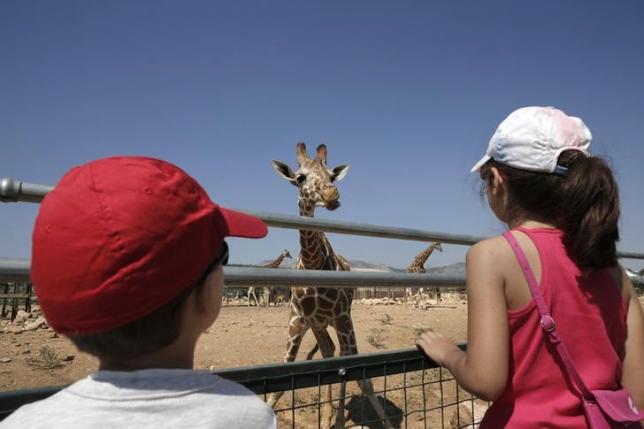Zoo animals in Athens at risk as crisis hits feed imports
ATHENS: Curious and noisy, a group of Madagascar lemurs surround Jean-Jacques Lesueur, founder of Attica Park in Athens, unaware that the special biscuits he is handing out to them are running low and they may soon not have enough to eat.
Three weeks after capital controls were imposed on Greece's moribund banking system, supplies of the special imported dietary supplements needed to feed 2,200 animals from 345 species at Athens' only zoo are under threat.
Like other foreign companies, suppliers of products ranging from frozen fish from the Netherlands to meal worms from Germany or special additives from France who used to be paid 60 days after delivery are now demanding payment in advance.
"Many of our animals require a special diet, which demands specific nutrition that can only be imported," Lesueur, a 71-year-old Frenchman who has lived in Athens for more than 45 years, told Reuters.
Two weeks ago on July 7, he received a call from his suppliers, telling him that the regular three-week delivery due in two days time would have to be paid in advance.
Lesueur tried to keep calm but realised that with the banks closed, he could not meet the payment.
"You can't do this, we're talking about animal lives here," he told the suppliers, who eventually relented and agreed to make an exception. But they warned that future orders would have to be paid in advance.
Walking through the zoo, he points to ant-eaters, which get through around a tonne of meal worms a year or seals, pelicans, penguins or dolphins which rely on frozen herring from the Netherlands.
Meanwhile, he tries to find other solutions such using domestically produced horse feed additives for rhinos.
Already suffering as visitor numbers have dropped during the economic crisis, the privately owned zoo is also bracing for the shock of a steep rise in value added tax, which has jumped to 23 percent with immediate effect under the latest bailout deal.
But it is the plight of the animals which gives Lesueur the most urgent headaches.
"We want to pay them, we just don't have a way at the moment, the country is blocked, I can't get money out and our frozen supplies won't last more than two more weeks," he said.
"After that it will become very urgent to get supplies. It's a matter of life or death for the animals."






